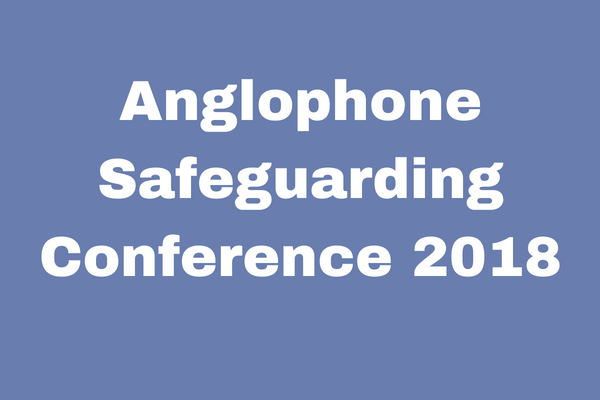
10 Things You Need to Know about the Anglophone Safeguarding Conference
On June 18, the four-day Anglophone Safeguarding Conference begins at the Pontifical Gregorian University. The conference is an intensive annual event aimed at networking representatives from English-speaking bishops' conferences, representatives of conferences of religious and associated professionals. If you’re new to the Anglophone Safeguarding Conference, here are 10 things you need to know:
- This is the 15th consecutive year of the Anglophone Safeguarding Conference!
Since 2004 this has been an annual event, gathering safeguarding professionals in positions of Catholic leadership from around the world. Even before 2004, there were a few conferences in the same spirit, beginning in 1991 in Chicago. This list of all the venues and organizers shows just how many people and countries have been involved. - The Anglophone Conference is not only “Anglo”.
Although English is the working language of the conference and the event is organized primarily by English-speaking bishops’ conferences, participants have come from many places, speaking Spanish, German, French, Italian, Polish, and many other languages, in addition to English. - Each year has a focus. This year’s is culture.
How to create culture with safeguarding as a core value is the great challenge of the Church and the world today. Among many other developments, the #MeToo movement of this past year shows us just how much work needs to be done. - The conference has been hosted 5 times at the Domus Sanctae Marthae.
The last time was in 2013 when Pope Francis was newly a resident of Domus Sanctae Marthae, and the event took place in his residence! A year later, he instituted the Pontifical Commission for the Protection of Minors. His pontificate has been marked by concern for the topic of safeguarding. - This is the 4th consecutive year the conference is held at the Pontifical Gregorian University (PUG).
Located in the heart of Rome, the PUG is a crossroads for cultures. The university has a long tradition of leadership, having educated 17 Popes and approximately 950 of the bishops who are active right now. - The conference is invitation-only.
Delegates from the bishops’ conferences and religious superiors’ conferences are invited to join the event and participate in the working groups. At the end of the event there is typically a press conference to share some of the ground that has been covered. - New this year: we will live-stream some of the talks!
The conference program can be found online and contains the names of all the speakers and sessions. Next week we will release a schedule noting which talks will be live-streamed on social media. - The 2018 conference is co-hosted by the Australian Catholic Bishops Conference, the Catholic Bishops Conference of Papua New Guinea and Solomon Islands, and the CCP.
This is very interesting because the Australian Royal Commission into Institutional Responses to Child Sexual Abuse concluded last December, and the Church of Australia has much to share with all of us about impact, response, and the journey of healing ahead. And even though Papua New Guinea–Solomon Islands may be smaller, the commitment and enthusiasm of their leadership bring great energy to the event. - The CCP has been involved since 2014.
The PUG is home to the Centre for Child Protection, a natural partner for the aims of the Anglophone Safeguarding Conference. Although the conference has been in existence longer than the centre, the CCP has taken up the challenge of supporting and promoting the conference as part of its mission to serve academic engagement on the topic of abuse prevention. - Networking is the key.
The point is to see how local churches around the world are taking on the challenge of safeguarding and to learn from each other what can be done.

